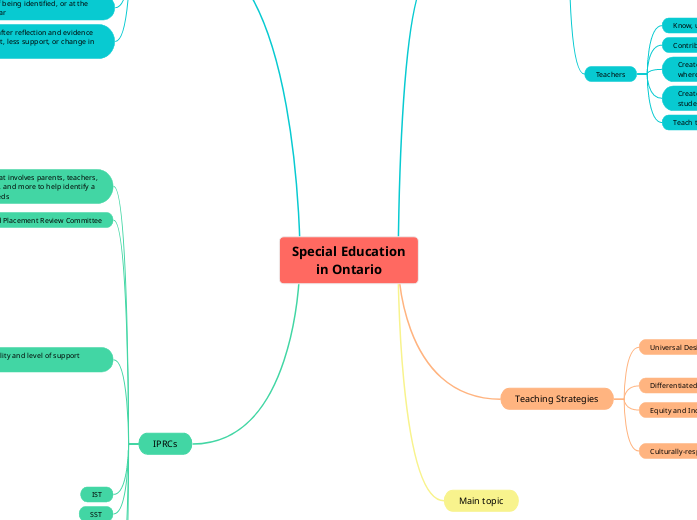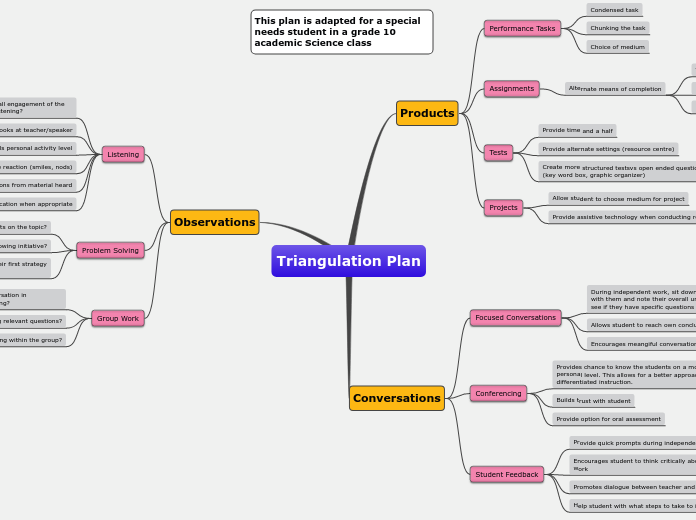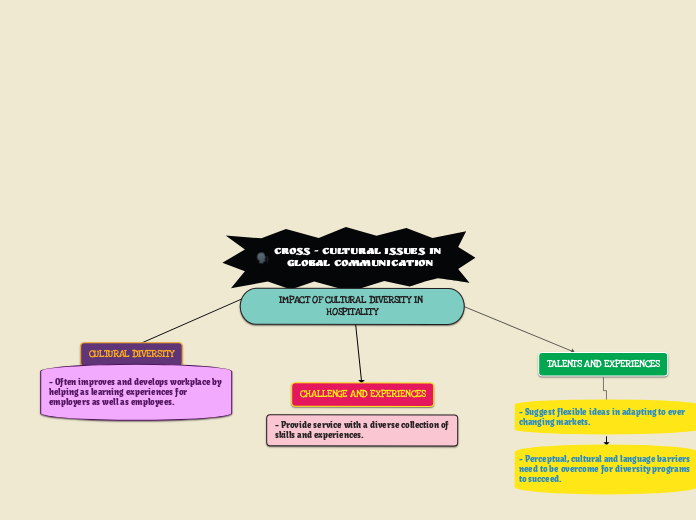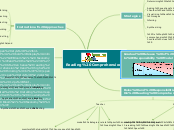Special Education
in Ontario
IPRCs
Parents can request, and principals need to respond within 10 days, but the meeting can be scheduled when possible
Placement
Special education class full time
Student receives 100% special education instruction
Special education class with partial integration
Student receives special education instruction for at least 50% of the school day
Regular class with withdrawl assistance
Student receives special education instruction for less than 50% of the day
Regular class with resource assistance
Student receives some specialized instruction, individually or in small group, from a special education teacher
Regular class with indirect support
Student is in regular class, and teacher receives consultative support
SST
IST
Decides the exceptionality and level of support needed
Multiple
MI (2 or more)
Physical
Blind and Low Vision
Physical Disability
Communication
LD
Language Impairment
Speech Impairment
DHH
Autism
Intellectual
DD
MID
Gifted
Behavioural
Behaviour Disability
Identification and Placement Review Committee
Exceptionality: the identification of a student who requires support
A meeting that involves parents, teachers,
support staff, and more to help identify a
student's needs
IEPs
Updated at any time, after reflection and evidence of need of new support, less support, or change in student's situation
Done within 30 days of being identified, or at the beginning of a new year
Strengths and Needs: a description of the individual child's abilities and areas of growth
Transition plans: a plan to help students when they
need support
Modifications
Changes to the curricular
expectations
Accommodations: strategies and methods
to help students succeed
Assessment
Example: use of computer, extra time, alternative location, advance notice
Subtopic
Environmental
Example: assigned classroom seat, break room access, fidget toy
Example: choice in learning activities, one-on-one check ins, reinforcing positive behaviour
Main topic
Teaching Strategies
Culturally-responsive pedagogy
Instructional
Personal
Institutional
Equity and Inclusion
Differentiated Instruction
Altering and personalizing instruction for students whose needs are not met with UDL
Universal Design for Learning
Creating a classroom environment and instructional methods where every student has what they need and can access materials without barriers to instruction
Rights and Obligations
Teachers
Teach the Ontario curriculum
Create and maintain positive relationships with all students
Create a safe and positive classroom environment where every student is valued and can succeed
Contribute to IEP updating
Living document, can be done at any time
Know, understand, and apply IEP accommodations
Special Education teachers
Assist with IEPs
Teach students in special education classrooms
support other teachers in consultative roles
Principals
Direct creation and updating of IEPs, maintain communication with parents, chair IPRCs
School Boards
Special Education Plan
Education Act
Access for Ontarians with Disabilities Act









